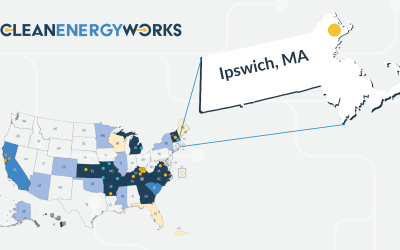DTE Energy, in Detroit, is the first utility in the United States to propose and get approval for an inclusive utility investment program for transit buses. On November 18, 2022, the Michigan Public Service Commission approved a Charging Expansion proposal that included a pilot for batteries for electric transit buses, based on the PAYS® for Clean Transport mechanism. This mechanism addresses the high upfront cost of electric transit buses by allowing the utility to capitalize on-board batteries.
During the approval of the $30M package, the Commissioners called out PAYS as an innovative alternative to electrify fleets and actually encouraged the utility to propose the expansion for electric school buses too. Clean Energy Works has supported DTE staff in the development of the tariff, provided expert testimony in the proceeding and is excited to support the implementation of this pilot.
Transportation electrification is a new category of investment for utilities, not only in the delivery of electricity as fuel, but in other grid assets such as the charging infrastructure and the battery of light duty and heavy duty vehicles. Clean Energy Works worked in 2018 with the Global Innovation Lab for Climate Finance to develop PAYS for Clean Transport, starting with transit buses.

Through this instrument, DTE will pay the upfront cost for the battery, reducing the upfront cost of the electric bus for the transit agency, and leveraging any other funding available or financing needed to cover all the cost for the bus replacement. DTE will recover all the costs via a service charge on the electricity bill of the transit agency. The tariff caps the service charge to be less than the estimated savings from switching from diesel buses to electric buses.
Inclusive utility investments can also be applied to electric school buses, other heavy duty electric fleets, and to private electric vehicles. With the increased demand for electric school buses, demonstrated by the participation of school districts in the EPA’s Clean School Bus Program, there is a big potential for this instrument to be expanded to school buses and help leverage federal funding.




